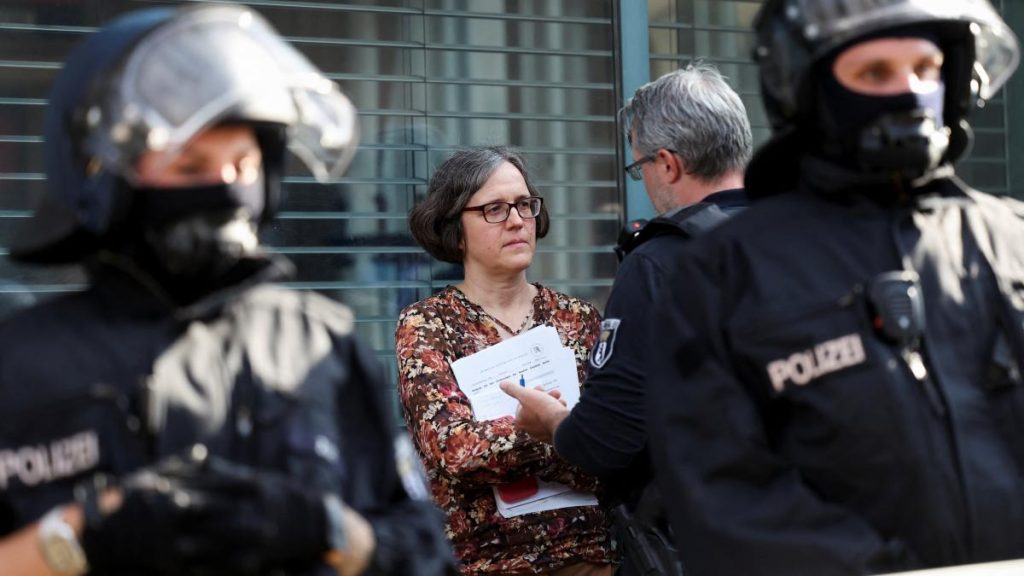Humboldt University in Berlin has been in the spotlight recently after being occupied by pro-Palestinian activists for more than 24 hours. The occupation was eventually ended after an order from authorities, with University President Julia von Blumenthal stating that she had followed instructions from above. While she disagreed with some of the political demands circulating in the press and condemned the damage done to the building during the occupation, she emphasized the importance of being present for the students.
Despite the challenges posed by the occupation, Blumenthal had previously attempted to engage in dialogue with the protesters in a spirit of mutual respect and understanding. She expressed regret that the situation had not been resolved amicably, as she believed progress could have been made in fostering communication and reconciliation among the diverse groups involved. The President acknowledged the suffering of Palestinian and Jewish students, emphasizing the need for a nuanced approach to addressing the complexities of the situation.
The decision to evacuate the occupied building came from high-ranking officials, with the order being issued by Science Senator Ina Czyborra in coordination with the Governing Mayor Kai Wegner. The university complied with the directive, despite the vocal chants of the activists accusing Israel of genocide in Gaza. Blumenthal clarified that the assertion of genocide in Gaza was a matter of contentious debate within the scholarly community, with differing perspectives on the legality of such claims. She also reaffirmed the university’s commitment to maintaining ties with Israeli partner universities.
Regarding the potential repercussions for the students involved in the occupation, Blumenthal indicated that law enforcement officials were collecting personal information and only pursuing charges in cases of criminal acts or formal complaints. The university stated that they would not be filing charges for trespassing due to the temporary nature of the occupation. However, they reserved judgment on the extent of property damage until a thorough assessment could be conducted. The President clarified that the university stood by its decision to allow the occupation but was committed to upholding the rule of law.
The episode at Humboldt University highlights the complexities inherent in addressing sensitive political issues on university campuses and the importance of balancing academic freedom with security concerns. Despite the challenges faced during the occupation, there is an ongoing commitment to fostering dialogue and understanding among diverse student populations. Blumenthal’s efforts to engage with the protesters reflect a desire to create an inclusive and respectful academic environment that acknowledges the multifaceted perspectives and experiences of all students involved. Ultimately, the university continues to navigate the aftermath of the occupation and seek ways to promote cooperation and mutual respect among its community members in the pursuit of academic excellence and social justice.















